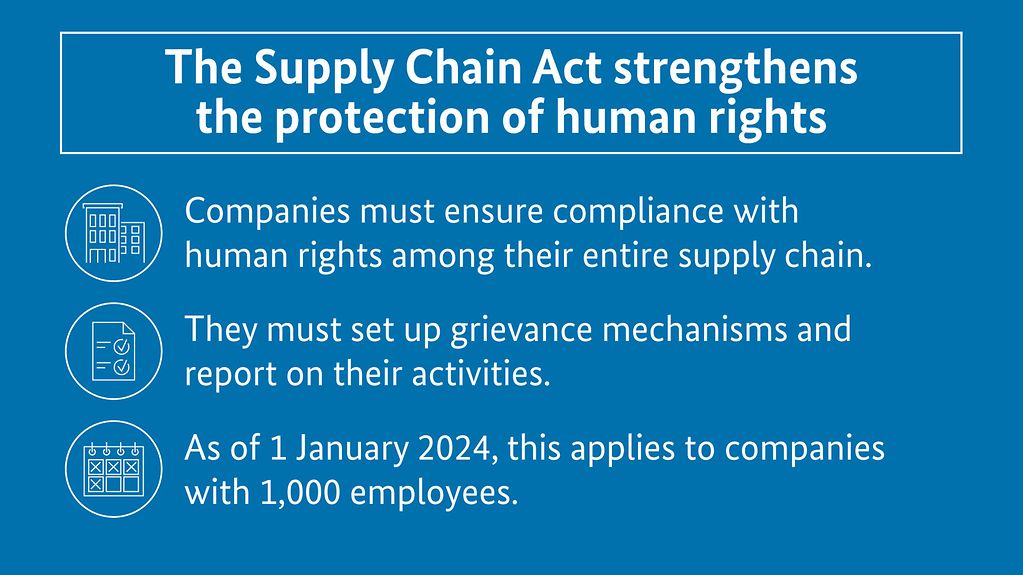Responsibility in global supply chains
Garments come from Asia, cocoa and fruit from Africa, and coffee from South America: the new law on corporate due diligence aims to protect the rights of people all over the world who produce goods for the German market. From 2024 it applies to companies with a workforce of at least 1,000 employees.
2 min reading time

The Supply Chain Act (Lieferkettengesetz) aims to protect the rights of people who produce goods for the German market.
The graphic shows the headline “The Supply Chain Act strengthens the protection of human rights” on a blue background. Below it is written:
- Companies must ensure compliance with human rights along the entire supply chain
- Among other things they must set up grievance mechanisms and report on their activities
- “As of 1 January 2024, this applies to companies with 1,000 employees”
Photo: Federal Government
In trade and production, basic human rights are repeatedly violated within global supply chains, with child labour, exploitation, discrimination and inadequate protection under labour law. Since 2023, the law on corporate due diligence in supply chains has required German companies to do more to meet their global responsibilities.
At the same time, the Supply Chain Act ensures legal certainty and reduces competitive disadvantages for companies that have already voluntarily invested in sustainable supply chain management. From 2024 onwards it will apply to companies in Germany with at least 1,000 employees. In 2023 – the year it came into force – it applied to companies with at least 3,000 employees.
What does the Supply Chain Act regulate?
Companies’ responsibility is to extend along their entire supply chain, graduated in line with the opportunities they have to exert an influence. Companies must realise their obligations in their own field of business and vis-à-vis their direct suppliers. Indirect suppliers are involved as soon as the company receives substantiated reports of human rights violations at that level.
The legislation translates into concrete provisions the way in which companies have to comply with their due diligence obligations in the field of human rights. This involves analysing human rights-related risks, taking measures to prevent and mitigate human rights violations, setting up grievance mechanisms and reporting on their activities.
Protecting health and the environment
The legislation also covers environmental protection in cases were environmental risks can lead to human rights violations. This means that instances of environmental destruction are taken into account such as illegal deforestation, pesticide emissions, water and air pollution. It also establishes environment-related obligations arising from two international agreements to prevent health and environmental hazards posed by mercury and persistent organic pollutants.
For further information on the Federal Government’s employment and local policy, see our work and social topic page.